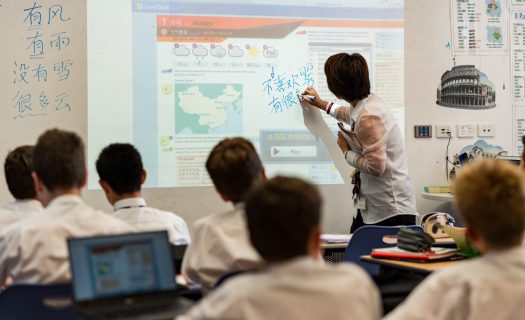Access to Language Courses
Access to Language Courses
English as a second language
The ESL course may be studied by any student who has been educated overseas or in an Australian educational institution with English as the language of instruction for five years or less prior to commencing the Preliminary course. This includes:
- Students whose learning has been interrupted by periods away from education using English as the language of instruction; and
- Aboriginal and Torres Strait Islander students from indigenous communities where standard English is not the common language of the local
The onus is on students to present evidence of prior schooling. Students selecting this course will be required to complete and sign an eligibility declaration.
In cases where it is difficult to ascertain the extent to which students have been using English as the language of instruction, entry to the course will be determined on the basis of an assessment of their oral and written language competence.
For a student who has had a substantially interrupted education, or little or no formal education using English as the language of instruction, approval may be sought for up to 12 months to be added to the course entry requirements period.
Languages other than English
A student may present for no more than one of the following languages: Croatian | Macedonian | Serbian | Slovenian


Eligibility for Stage 6 Language Courses
For the following four languages, the Board has developed separate courses for students with and without a background in the language:
- Chinese
- Indonesian
- Japanese
- Korean
To be eligible for a course, students are required to meet all of the criteria at the entry point to that course.
Beginners
Target Candidature: Students are learning the language as a second (or subsequent) language. Students either have no prior spoken or written knowledge or experience of the language, or their experience is derived solely from, or is equivalent to, study of the language for 100 hours or less in Stage 4 or Stage 5.
Eligibility Criteria: Students have had no more than 100 hours’ study of the language at the secondary level (or the equivalent).
Students have little or no previous knowledge of the language. For exchange students, a significant in-country experience (involving experiences such as homestay and attendance at school) of more than three months renders a student ineligible.
Continuers
Target Candidature: Students are learning the language as a second (or subsequent) language. Students typically have studied the language for 200–400 hours at the commencement of Stage 6. (In languages where Extension courses are offered, the Extension courses are available to HSC Continuers course candidates only.)
Eligibility Criteria: Students have had no more than one year’s formal education in a school where the language is the medium of students have no more than three years residency in the past 10 years in a country where the language is the medium of communication. Students do not use the language for sustained communication outside the classroom with someone with a background in using the language.
Heritage
Target Candidature: Students typically have been brought up in a home where the language is used, and they have a connection to that culture. These students have some degree of understanding and knowledge of the language. They have received all or most of their formal education in schools where English (or another language different from the language of the course) is the medium of instruction. Students may have undertaken some study of the language in a community, primary and/or secondary school in Australia. Students may have had formal education in a school where the language is the medium of instruction up to the age of ten.
Eligibility Criteria: Students have had no formal education in a school where the language is the medium of instruction beyond the year in which the student turns ten years of age (typically Year 4 or 5 of primary education).
Background Speakers
Target Candidature: Students have a cultural and linguistic background in the language.
Eligibility for Beginners courses in other languages
Students who have no experience of the language or whose experience is derived solely from 100 hours or less of the language in Stage 4 or 5 are eligible to undertake the Beginners course in that language. No other student is eligible. A Beginners course is a course of study that is intended to cater only for students who have very little or no prior knowledge of a language and who wish to take up the study of that language as beginners.
Within these guidelines, the Board delegates to the principal the authority to determine a student’s eligibility for a Beginners course.
For the purposes of determining course eligibility, speakers of dialects and variants of a language are considered to be speakers of the standard language. A central factor in determining eligibility for Beginners courses is whether a student has had the equivalent of more than 100 hours experience of the language during Years 7–10.
Beginners course eligibility and exchange students
Prior participation in a significant in-country experience —for example, a student exchange program of more than six months— automatically renders a student ineligible to undertake a Beginners course in the language of that country.
Note: Failure to observe the rules could jeopardise the award of a student’s Higher School Certificate.
Beginners Languages Eligibility Declaration
All intending Beginners languages students will be required to complete the Beginners Languages Eligibility Declaration.
